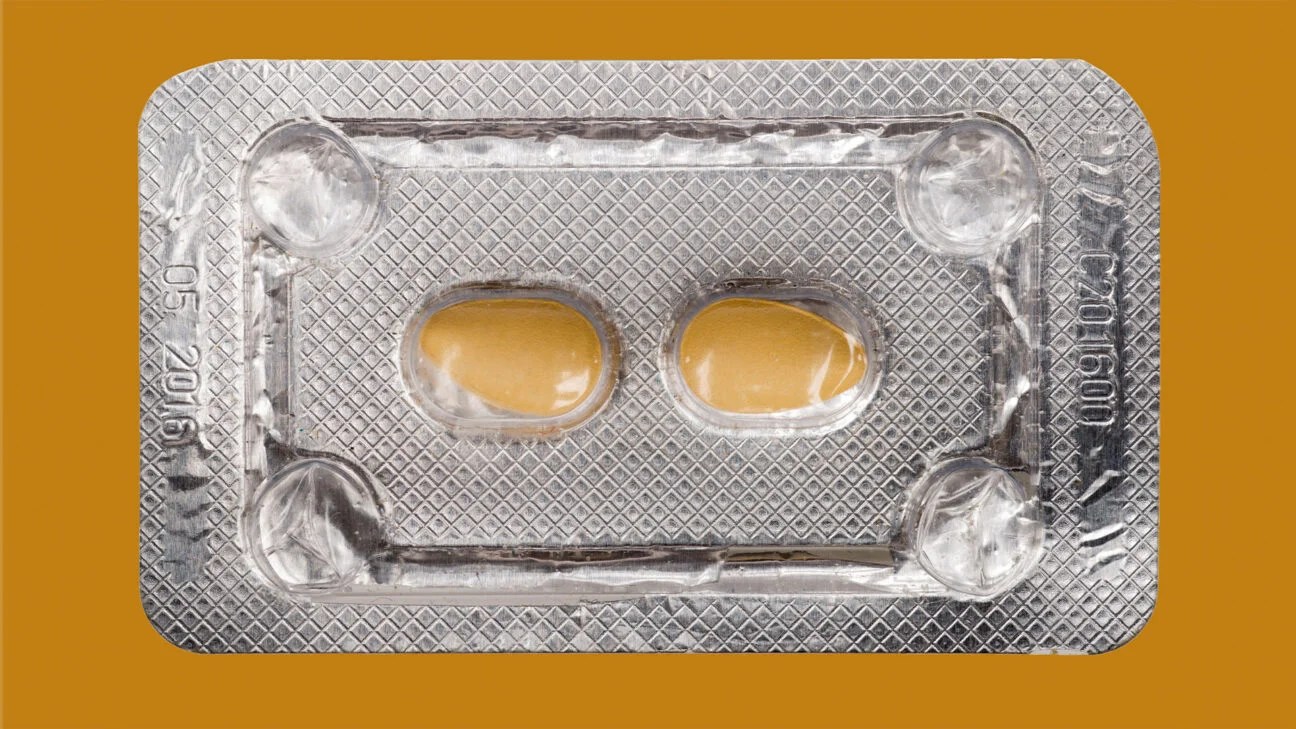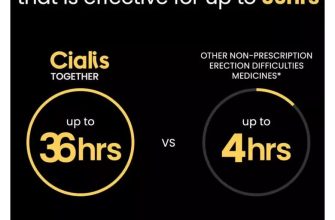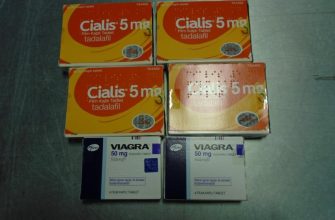Finding the right solution for erectile dysfunction can be challenging. Many men explore alternatives to Cialis, and Tadalafil, the active ingredient in Cialis, offers a compelling option. It’s available in generic form, often at a significantly lower cost than brand-name Cialis, providing comparable efficacy for many.
Tadalafil boasts a longer duration of action than some competitors, often lasting up to 36 hours. This extended window allows for greater spontaneity and flexibility in planning intimate moments. Remember to always consult your doctor before starting any new medication, including Tadalafil, to discuss potential interactions and suitability for your individual health profile. Your doctor can also help determine the correct dosage.
Beyond Tadalafil, other potential alternatives exist, such as Vardenafil and Avanafil. Each medication has its unique characteristics regarding onset of action and duration. Thorough research and open communication with your healthcare provider are key to finding the best fit for your needs and preferences. Don’t hesitate to ask questions and discuss all your concerns to make an informed decision.
- Best Cialis Alternatives: A Comprehensive Guide
- Natural Alternatives
- Other PDE5 Inhibitors
- Lifestyle Changes
- When to Consult a Doctor
- Understanding Your Erectile Dysfunction and Finding the Right Treatment
- Exploring Non-Prescription Options for ED: Lifestyle Changes and Herbal Remedies
- Prescription Alternatives to Cialis: Comparing PDE5 Inhibitors and Other Treatments
- PDE5 Inhibitors: Similar Mechanisms, Different Profiles
- Beyond PDE5 Inhibitors: Alternative Approaches
Best Cialis Alternatives: A Comprehensive Guide
Consider Tadalafil. It’s a common Cialis alternative, offering similar benefits with comparable duration. Many find it a suitable replacement.
Natural Alternatives
Explore natural options like L-arginine, an amino acid that boosts nitric oxide production, potentially improving blood flow. However, remember that individual responses vary, and results might not be as dramatic as with prescription medication. Consult your doctor before using supplements, especially if you have underlying health conditions.
Other PDE5 Inhibitors
Vardenafil and Avanafil are two other PDE5 inhibitors similar to Cialis. They function similarly but might have slightly different onset times and duration of effects. Speak to your physician to determine which might best suit your individual needs and medical history. They can help you understand potential side effects and interactions with other medications.
Lifestyle Changes
Lifestyle adjustments can positively impact erectile function. Regular exercise, a balanced diet, and stress management techniques are crucial. Quitting smoking and limiting alcohol consumption are also significant factors. These changes are not a replacement for medication but can enhance its effectiveness or reduce the need for it entirely.
When to Consult a Doctor
Always discuss potential alternatives with your doctor before making changes to your medication. They can assess your overall health, discuss potential risks and benefits, and guide you toward the safest and most effective approach.
Understanding Your Erectile Dysfunction and Finding the Right Treatment
Schedule a consultation with a doctor. They can accurately diagnose the cause of your erectile dysfunction (ED), which may stem from various factors like underlying health conditions, medication side effects, or psychological issues. This accurate diagnosis is crucial for determining the most suitable treatment plan.
Discuss lifestyle modifications. Your doctor might recommend changes to improve your overall health and potentially alleviate ED. These could include regular exercise, a balanced diet, weight management, and limiting alcohol and smoking. Addressing these aspects can significantly impact your condition.
Explore treatment options. Based on your diagnosis, your doctor will discuss various treatment options. These might range from oral medications like Viagra or Cialis, to injections directly into the penis, vacuum erection devices, or even surgery, depending on the severity and cause of your ED. Remember to openly discuss potential side effects and risks associated with each.
Consider psychological factors. ED can sometimes be linked to anxiety, stress, or relationship problems. Your doctor might recommend therapy or counseling to help you address these underlying psychological factors contributing to your ED.
Remain patient and persistent. Finding the right treatment might require some trial and error. Work closely with your doctor to adjust your treatment plan as needed until you find what works best for you. Regular check-ups are essential to monitor progress and make any necessary adjustments.
Maintain open communication. Don’t hesitate to talk openly with your doctor about your concerns, symptoms, and the effectiveness of your treatment. This open dialogue ensures the best possible outcome and helps manage your ED effectively.
Exploring Non-Prescription Options for ED: Lifestyle Changes and Herbal Remedies
Prioritize regular exercise. Aim for at least 150 minutes of moderate-intensity aerobic activity weekly. This improves blood flow throughout the body, including the penis.
Maintain a healthy weight. Obesity significantly contributes to ED. Losing even a small amount of weight can make a noticeable difference.
Quit smoking. Smoking damages blood vessels, hindering blood flow and impacting erectile function. Consider nicotine replacement therapy or counseling for support.
Manage stress. Chronic stress negatively affects sexual health. Incorporate relaxation techniques like yoga, meditation, or deep breathing exercises into your routine.
Improve your diet. Focus on fruits, vegetables, and lean proteins. Limit processed foods, saturated fats, and excessive sugar intake. A balanced diet supports overall health, including sexual function.
Address underlying medical conditions. Conditions like diabetes, heart disease, and high blood pressure frequently contribute to ED. Work with your doctor to manage these conditions effectively.
Consider herbal remedies. Some men report success with supplements like L-arginine or ginseng. Consult your physician before using any herbal remedies, as they can interact with medications or cause side effects.
Prioritize sleep. Aim for 7-9 hours of quality sleep each night. Sleep deprivation negatively impacts hormone levels and overall well-being, influencing erectile function.
Limit alcohol consumption. Excessive alcohol intake can impair erectile function. Moderate your alcohol intake or abstain entirely.
Open communication with your partner is crucial. Discuss concerns and anxieties openly to create a supportive and understanding environment. This can significantly reduce stress and improve intimacy.
Prescription Alternatives to Cialis: Comparing PDE5 Inhibitors and Other Treatments
If Cialis isn’t the right fit, several other medications address erectile dysfunction (ED). Let’s explore your options.
PDE5 Inhibitors: Similar Mechanisms, Different Profiles
PDE5 inhibitors like Viagra (sildenafil), Levitra (vardenafil), and Stendra (avanafil) work similarly to Cialis, relaxing blood vessels in the penis to improve blood flow. However, they differ in onset and duration of action. Viagra generally takes effect faster than Cialis but lasts shorter; Levitra offers a middle ground; Stendra boasts a relatively quick onset.
- Viagra: Fast-acting, shorter duration. Consider if you need quick results for specific occasions.
- Levitra: Moderate onset and duration, good balance of speed and longevity.
- Stendra: Rapid onset, potentially beneficial for spontaneous intimacy.
Your doctor can help determine which PDE5 inhibitor best suits your needs and lifestyle considering potential side effects and drug interactions. Always disclose all current medications.
Beyond PDE5 Inhibitors: Alternative Approaches
For men who don’t respond well to PDE5 inhibitors or have specific health conditions, alternative treatments exist.
- Alprostadil: This medication can be injected directly into the penis or administered as a urethral suppository. It’s effective, but some find the administration methods inconvenient or uncomfortable. Discuss this option with your doctor to assess its suitability.
- Vacuum Erection Devices (VEDs): VEDs create a vacuum to draw blood into the penis, achieving an erection. This non-invasive option is useful for some men, but may not be suitable for all.
- Penile Implants: This surgical option involves implanting inflatable or malleable rods into the penis. It’s a permanent solution for severe ED when other treatments have failed.
- Testosterone Replacement Therapy (TRT): Low testosterone can contribute to ED. TRT may be considered if testosterone deficiency is diagnosed.
Remember, consulting your doctor is crucial before starting any new medication or treatment. They can help determine the underlying cause of your ED and recommend the most appropriate course of action based on your individual health profile and preferences.






